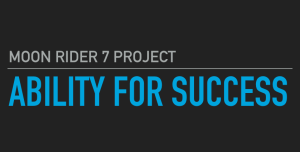This article is also available in: 日本語

Continuously on “Misunderstanding or Discrimination at Work and in Daily Life?” Ability For Success Online Meeting,
In the previous post, I summarized the Mizuki’s and Annie’s experiences of misunderstanding caused by their disabilities.
In this post, I have summarized the experience of discriminations of theirs.

At Work
Mizuki said that jobs are not created equally in Japan.
As mentioned in her research blogs, Japan adopted a quota system that requires employers to hire persons with disabilities at least 2% of the total employee amount when the total employee amount is more than 50 people.
The quota system was first made with a purpose to increase employment rate of persons with disabilities.
However, it appears some employers and companies take the quota system like it is a homework given by Ministry of Health, Labour and Welfare of Japan.
Employers started creating sheltered subsidiaries and low responsibility jobs to hire persons with disabilities so they can hand it their “homework.”
When Mizuki did job hunting in Tokyo, she was often told the position she wanted to apply for is not open to persons with disabilities and she was asked to consider to take an office work, which Mizuki does not want to do.
Another experience of discrimination Mizuki shared was not related to her mobility disability but with her gender.
One of the companies Mizuki worked with gives female employees lower responsibility tasks and miscellaneous tasks. Mizuki shared an story with us.
In Japan, when an employee came back from a business trip or vacation, he or she will bring some candy or cookies bought at the place he or she visited during the trip.
In the company Mizuki once worked with, the male employees always leave the candies and cookies to female employees and ask female employees to distribute the souvenirs to everyone in the office or in the team.
The male employees think their time is more valuable than female employees so will give miscellaneous tasks to female employees.
That is outrageous to me.
Annie shared her experience of going to job interviews in Taiwan.
She felt limitations when going to interviews and thinks if her able-bodied competitor may outdo her and win the position.
Annie did not give a concrete example so I am not sure exactly what she had experienced.

Daily life
Annie said that she had not really experienced discriminations based on her disability in Taiwan after she graduated from junior high school.
Before she turned 15, her young peer, who did not know much about her mobility impairment at the time, called her names.
That was very uncomfortable.
Mizuki said that she feels she is discriminated when going to movies and concert.
When we go to movies or go to a concert, we usually do not get to choose where we want to sit due to lack of accessibility.
We sometimes have to sit on the first few rows and look up to the large screen above us for 2 hours.
Persons with disabilities IDs can have a discount of 50% off when purchasing a movie ticket.
However, Mizuki and I often say that we are willing to pay 100% of the ticket price, please improve the accessibility.
Sometimes I wonder if the 50% off discount gives movie theater owners a “moral license” to NOT to improve the accessibility?
Mizuki has shared her thoughts in the following articles about accessibility of movie theater in Japan and U.S.
- Moon Rider’s Seat in Movie Theater
- Wheelchair Seat Is Located on The Best Location at Movie Theaters in the U.S.
Thank you very much for reading this summary of our first Ability for Success online event in 2016.
We are hosting our second one on 20-Mar-2016 (JST Time).
The topic is Society and Disability?
The Future of Social Win-Win Strategy.
We are looking forward to more participants to take about abilities and disabilities with us.
Please check here for more information and reserve your spot for free!
Thank you very much for reading!
